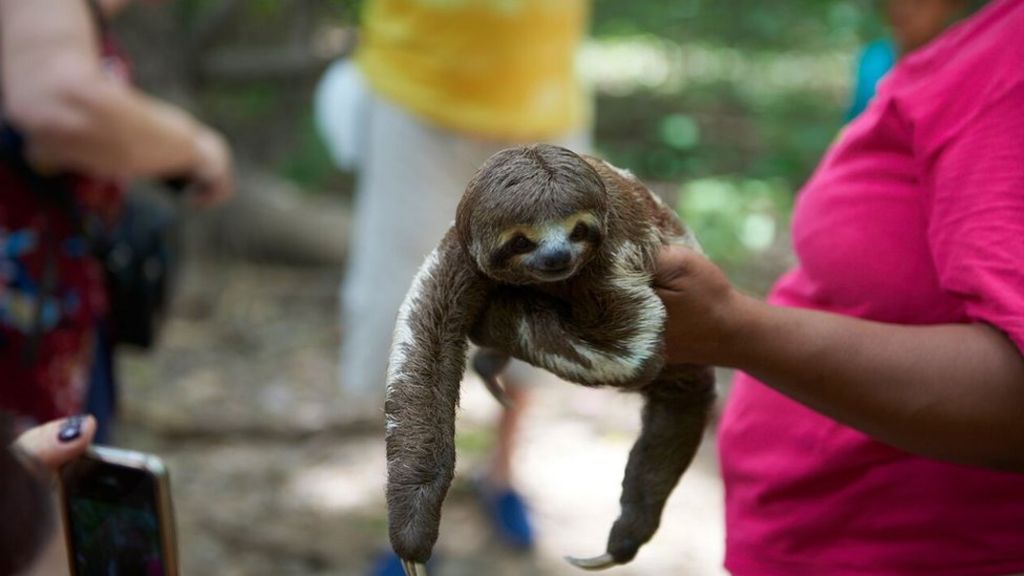Instagram Urged To Act On Sloth Selfies

 Image copyright
World Animal Protection
Image copyright
World Animal Protection
The trend for tourists taking selfies with local creatures is fuelling a rise in animals being snatched from the wild by irresponsible tour operators, according to animal charity World Animal Protection.
The charity found a 292% increase in the number of wildlife selfies posted on Instagram since 2014.
It is asking the site to take action to "protect animals on their platform".
Instagram said it was working with experts to address the issue.
"We prohibit the use of Instagram to facilitate or organise criminal activity that causes physical harm to animals," the company said.
"We remove reported content that promotes poaching of endangered species or the sale of animals for organised fight, and that includes acts of animal abuse.
"We are in ongoing conversations with wildlife experts and are looking at ways to provide our community with information around activities that can be harmful to animals and nature, such as posting content that may depict exploitation of wildlife and bad welfare practices."
Dr Neil D'Cruze, from World Animal Protection, said: "It's extremely distressing to see animals being stolen from the wild and used as photo props for posting on social media.
"The reality is these unfortunate animals are suffering terribly, both in front of and behind the camera."
"The growing demand for harmful wildlife selfies is not only a serious animal welfare concern but also a conservation concern."
Over one quarter of the pictures analysed by the charity are judged to be "bad selfies" - people hugging, holding or otherwise interacting inappropriately with wildlife.
Investigators looking at the treatment of such animals in the Amazon cities of Manaus, in Brazil, and Puerto Alegria, in Peru, found evidence of:
- sloths captured and tied to trees
- birds such as toucans with severe abscesses on their feet
- green anacondas wounded and dehydrated
- caiman crocodiles restrained with rubber bands around their jaws
- a manatee held in a tank in the forecourt of a hotel
From Chip War To Cloud War: The Next Frontier In Global Tech Competition
The global chip war, characterized by intense competition among nations and corporations for supremacy in semiconductor ... Read more
The High Stakes Of Tech Regulation: Security Risks And Market Dynamics
The influence of tech giants in the global economy continues to grow, raising crucial questions about how to balance sec... Read more
The Tyranny Of Instagram Interiors: Why It's Time To Break Free From Algorithm-Driven Aesthetics
Instagram has become a dominant force in shaping interior design trends, offering a seemingly endless stream of inspirat... Read more
The Data Crunch In AI: Strategies For Sustainability
Exploring solutions to the imminent exhaustion of internet data for AI training.As the artificial intelligence (AI) indu... Read more
Google Abandons Four-Year Effort To Remove Cookies From Chrome Browser
After four years of dedicated effort, Google has decided to abandon its plan to remove third-party cookies from its Chro... Read more
LinkedIn Embraces AI And Gamification To Drive User Engagement And Revenue
In an effort to tackle slowing revenue growth and enhance user engagement, LinkedIn is turning to artificial intelligenc... Read more

